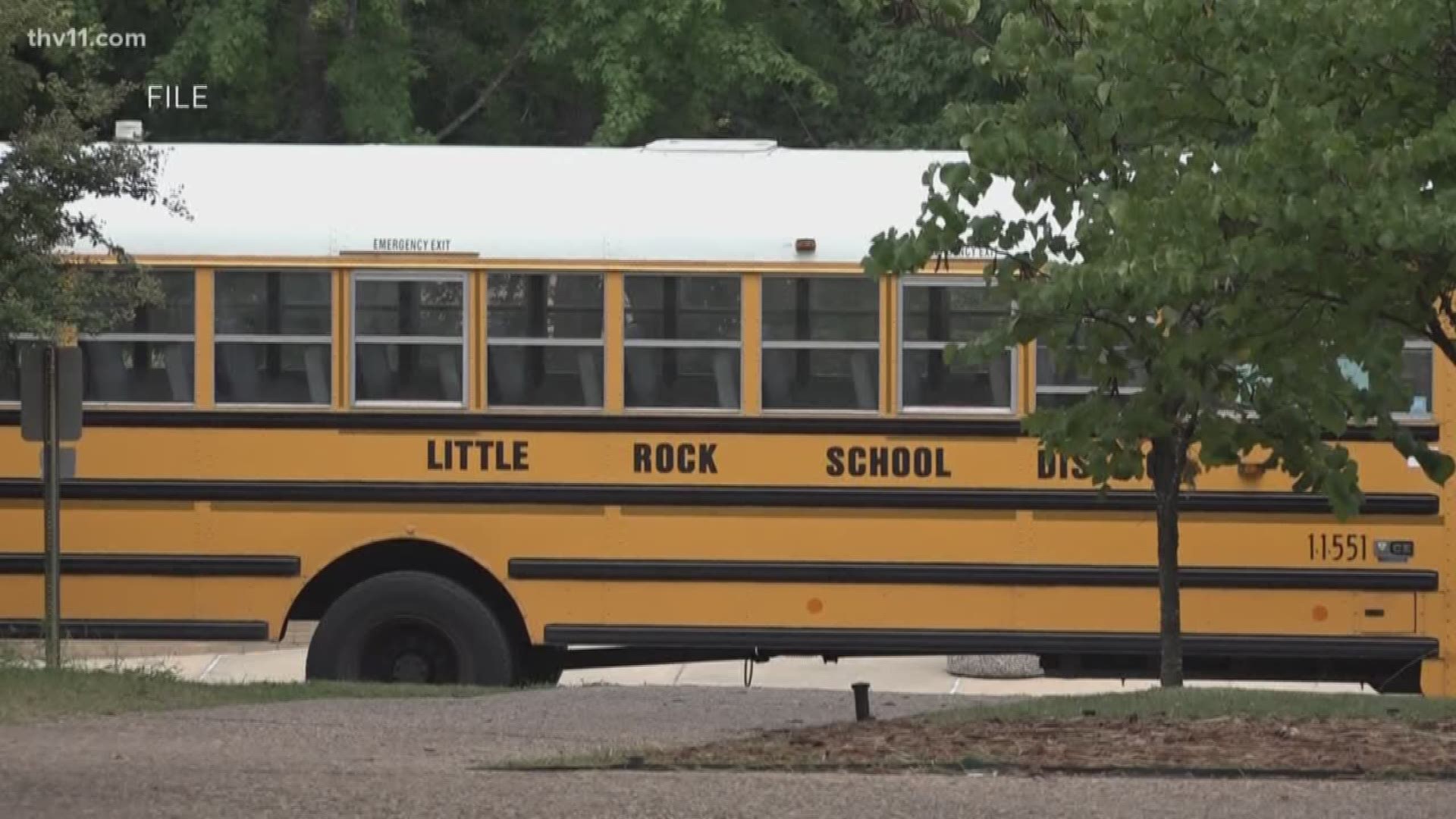Some state lawmakers believe they have a way to improve education in Pulaski County. Some from the other side of the aisle believe the plan would ruin the county’s four public school districts.
Senate Bill 620 has the support of Governor Asa Hutchinson and U.S. Secretary of Education Betsy DeVos. It would create the Capitol Promise Scholarship Pilot Program, a five-year effort to allow low-income families in Pulaski County to use state funds to cover the cost of sending their children to private schools.
Leaders from the Democratic and Republican parties held separate news conferences Monday to outline their reasons for opposing and supporting the legislation, respectively.
“Not one of us is against kids having opportunities to do well,” State Sen. Joyce Elliott (D-Little Rock) said, as she stood in front of a group of her fellow Democratic legislators. “Not one of us is in a position where we say that every kid should not have the opportunity to have a world-class education. What we do have a problem with, however, is the very notion that we are going to choose certain kids in Pulaski County and Pulaski County, only, to create a social experiment that does not need to happen.”
SB620 is sponsored by Sen. Blake Johnson (R-Corning) and Rep. Ken Bragg (R-Sheridan). It calls for spending of no more than $3.5 million and would authorize the Arkansas Department of Education to oversee the program, including annual reports about its effectiveness.
Bragg explained that Pulaski County was chosen for the pilot because it has a high number of low-income families and a high number of private schools. Elliott said it is not a stretch to infer that “low-income” means “black.”
But a group of Democratic lawmakers said Monday that Senate Bill 620, the Capitol Promise Scholarship, is nothing more than a social experiment on poor, black families. She said members of the black community are angry about the plan because it reminds them of physical experiments performed on black people in decades past.
“I am not suggesting that the governor does not have good motives,” Elliott added. “I’m suggesting, when you don’t understand, when you don’t understand because you’ve not been a part of something that has affected you or your culture, or your group like this, you ought to listen to people.”
She said the sponsors of the bill did not ask any members of the Arkansas Legislative Black Caucus for their input and pointed out that the two primary sponsors of the bill are not from Pulaski County.
SB620 is, “something we have not asked for, something that was not created with our input,” she said. “’If it doesn’t work, we’ll know after five years.’ On your kids? On your kids?”
“I wish we lived in a state where we find ways to find money to lift up our public schools,” State Rep. Tippi McCollough (D-Little Rock) said, “instead of finding ways to find money to give away to private schools.”
Bragg joined several Republican leaders and school choice advocates in explaining how the Capitol Promise Scholarship would fit in the broader plan to improve education outcomes in Arkansas.
“There will always be children that need an option,” Bragg mentioned, “an option that will allow them to fit their individual needs and succeed. There will always be those children who are somewhat like square pegs trying to fit in a round hole. They’re the ones that need to find a square hole.”
Lt. Gov. Tim Griffin (R-Arkansas), a vocal supporter of school choice, mentioned that he has children enrolled in both public and private schools.
“We need to be allowing parents to do what’s best for their child. And you know what? We’re not all perfect parents, but parents know a heckuva lot more about what’s good for their child than the government does.”
Griffin mentioned that school choice has existed in some form for two decades, and several states have implemented similar scholarship programs. Attorney General Leslie Rutledge said the size of a family’s bank account should not determine the possibilities available to their children.
“Money may not buy opportunities, but being broke sure doesn’t,” she said. “Well, folks, there’s a lot of children, a lot of parents I Pulaski County and Little Rock who don’t have the money to give their child the opportunities that many of us had.”
Elliott argued that providing more funding for Pre-K programs or historically-black colleges and universities would be better uses of the money.
June Matheny, a former teacher, joined the group of Republicans to say that allowing kids to leave schools that are bad fits is a priceless benefit.
“We are doing them a disservice by not having it,” she stated, “and we should be encouraging parents to be more involved, and I think this is another way to do it.”
SB620 has been referred to the Senate Education Committee but has not been placed on an upcoming agenda.
Rep. Jim Dotson (R-Bentonville) sponsored a similar bill in 2017 that would have created a statewide scholarship program, but it got voted down.

